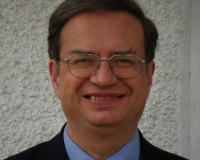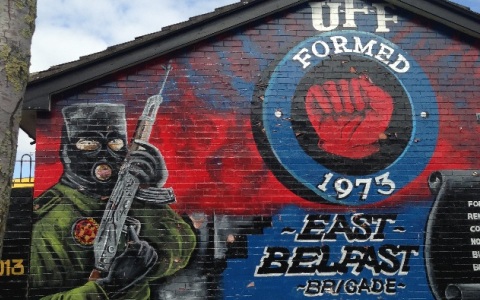ANALYSIS Religion is like sex education: it must permeate the whole curriculum
by - 27th April 2016
 RELIGIOUS literacy is key to solving social problems of misunderstanding and insecurity. Yet I do not see it as requiring extensive factual knowledge, and certainly do not equate it with religious commitment.
RELIGIOUS literacy is key to solving social problems of misunderstanding and insecurity. Yet I do not see it as requiring extensive factual knowledge, and certainly do not equate it with religious commitment.
Indeed religiously committed people often lack religious literacy insofar as they can hold stereotyped perceptions of traditions other than their own.
Rather I would suggest that religious literacy is a set of skills and attitudes that enables someone to understand the nature of a religious worldview and its implications for daily life, even when the beliefs and practices in question are very different from their own.
Just as sex and relationships education should not been seen as merely a matter of biology, religious literacy is too important to be left just to RE. Its social and cultural significance needs to be explored in the context of subjects such as History, English, Geography, Politics and citizenship education.
It is equally essential for those of all faiths and none.
My sense of the importance of religious literacy derives particularly from my work on the interface between religion and security.
It is crucial that those responsible for identifying individuals at risk of being drawn into terrorism are able to make religiously literate judgements, otherwise there is a danger of stigmatizing intense but harmless patterns of mainstream religious behaviour while missing deviant and potentially extreme beliefs and attitudes.
Religious literacy is also vital for the media who can otherwise risk reinforcing public prejudices and misunderstandings.
Distorted
Greater religious literacy among at-risk groups themselves is needed to pre-empt distorted or sectarian understandings of their own tradition, and unwarranted assumptions about others, for example the widespread Muslim perception that they face a neo-crusading mentality among Christians.
How then do we improve religious literacy?
In the long term, good quality RE teaching in schools is of course strategic, and is an area that needs encouragement and investment in teacher training and staff development. However, both at school and university level it is crucial that religion is not seen as a limited subject ghetto but integrated into the wider curriculum.
As an Open University academic I naturally see considerable potential in distance and online materials both for formal higher education and for more informal lifelong learning about religion. There is already much that is available here, some of it free at the point of use, and hence potentially valuable resources for cash-strapped organizations and individuals seeking to improve their levels of religious literacy.
We have mentioned some examples in a written Open University submission. It would be possible with relatively modest investment to develop a website that would itself provide basic religious literacy training, with links to existing online resources for those needing a more in-depth understanding. In the longer term gaps in those resources could be identified and further investment made to fill them.
Nevertheless, we should not see online resources alone as providing a solution.
Contact

My research on Northern Ireland shows clearly that a key factor in breaking down prejudices between Catholic and Protestant communities is personal contact, something that cuts across levels of personal religious commitment and involvement. I am sure that the same applies to religious groups elsewhere in the UK.
I therefore believe that initiatives such as that of the Muslim Council of Britain in recently encouraging open days at mosques point a significant way forward. Similarly my own church has recently started holding annual open days, with a view to sharing an understanding of our beliefs and activities with local people who may not feel it is appropriate for them to attend a worship service. It would be good to see central and local government giving positive encouragement and publicity to such activities.
Finally, in relation to government and parliament itself. I perceive a need for more sophisticated religious literacy in legislation and policy, for example in informing foreign policy towards the Muslim world and in implementing the Prevent policy in a manner that genuinely prevents extremism while not alienating moderates.
So, just as government now benefits from an independent office for budget responsibility, I would plant the thought that it needs an office for religious responsibility that can be a channel for communication with religious groups themselves as well as with researchers and analysts. But, whatever mechanisms are used, I would urge that religious literacy considerations should inform all relevant legislation and policy in the way that equality and human rights considerations already do.
So to sum up, I would leave you with four key messages.
- It is essential to improve religious literacy to strengthen community cohesion and national security.
- Progress in religious literacy requires much closer collaboration between academia, government, the media and religious groups themselves.
- ‘Top down’ educational and policy initiatives may well be useful but they must be complemented by facilitating grass-roots face-to-face interactions.
- Religious literacy is too important to be left merely to formal religious education.
This paper was presented at an oral evidence session of the All Party Parliamentary Group on Religion and Education Religious Literacy Inquiry, chaired by Fiona Bruce MP on 25 April. The other three panellists were Lord Singh of Wimbledon, Nick Spencer (Theos) and Miriam Lorie (University of Cambridge).
 Professor John Wolffe is a historian of religion in Britain since the early nineteenth century. He is particularly interested in exploring the long view of our contemporary religious situation, specifically the parallels between historic anti-Catholicism and present-day Islamophobia. He also recently held a Global Uncertainties Leadership Fellowship providing for the security community an overview of relationships between religion and security. He is a longstanding member of the Religious Studies department at the Open University, with extensive experience of teaching adult distance learners about religion, both in specialist courses and in the context of wider interdisciplinary study. He is an active committed Christian –currently churchwarden of a multicultural Anglican church in northwest London. He is a Trustee of Lapido Media.
Professor John Wolffe is a historian of religion in Britain since the early nineteenth century. He is particularly interested in exploring the long view of our contemporary religious situation, specifically the parallels between historic anti-Catholicism and present-day Islamophobia. He also recently held a Global Uncertainties Leadership Fellowship providing for the security community an overview of relationships between religion and security. He is a longstanding member of the Religious Studies department at the Open University, with extensive experience of teaching adult distance learners about religion, both in specialist courses and in the context of wider interdisciplinary study. He is an active committed Christian –currently churchwarden of a multicultural Anglican church in northwest London. He is a Trustee of Lapido Media.
